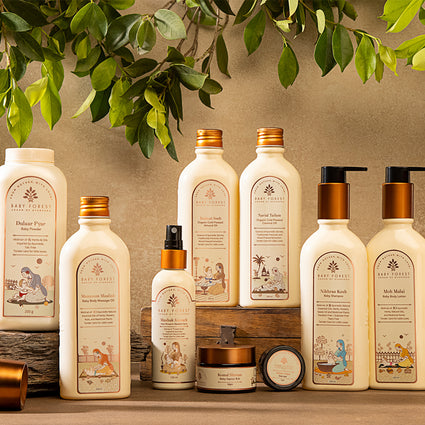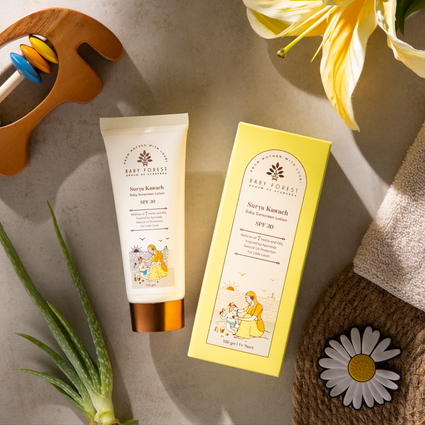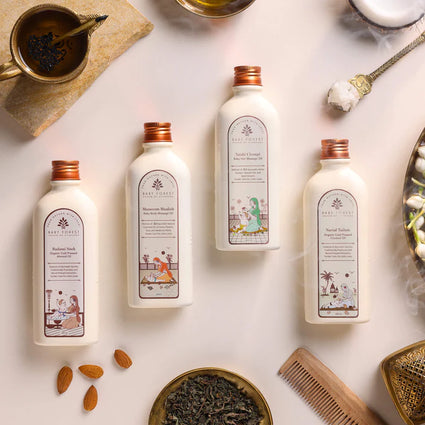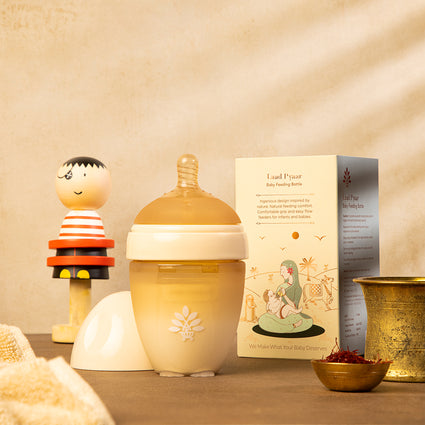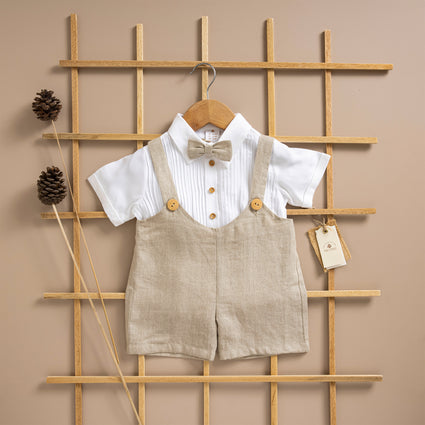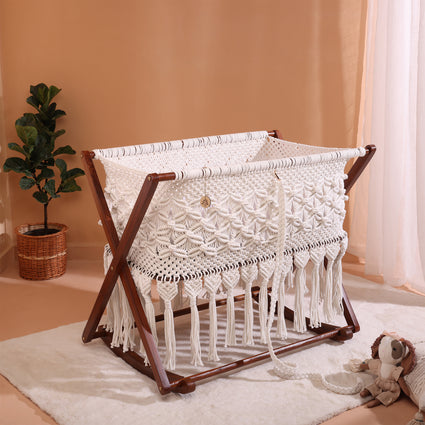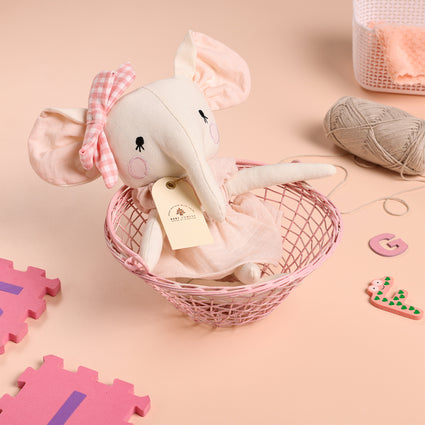Baby Care & Parenting Blogs
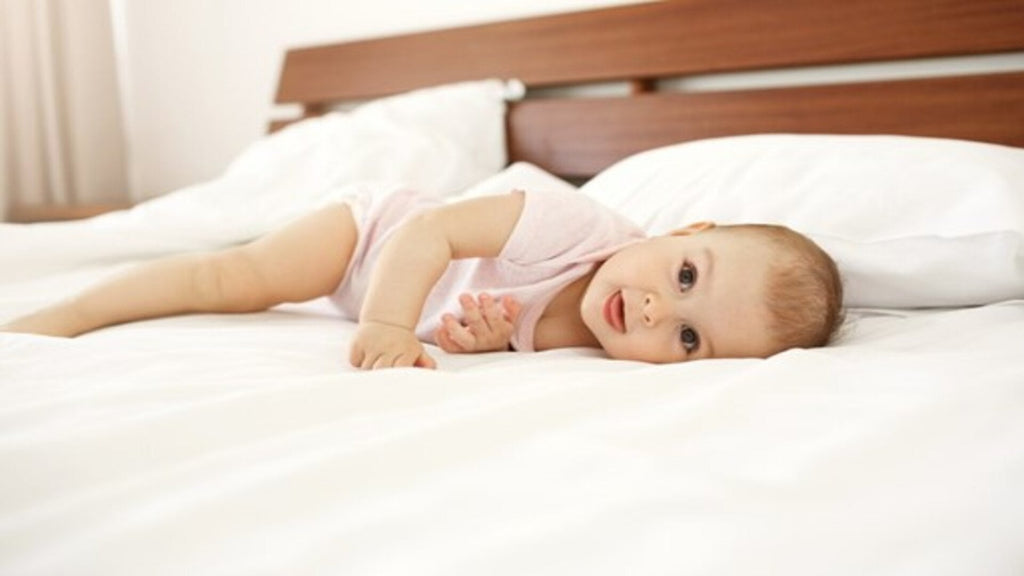
Effective Tips for Managing Bedwetting
As parents navigate the journey of raising a child, nighttime wetness, or bedwetting, is a common concern that often arises. In this comprehensive guide, we will explore effective tips for managing bedwetting, providing insights into understanding and addressing this common occurrence in infants. Whether you're a new parent or an experienced caregiver, these tips aim to support you in creating a comfortable and dry sleep environment for your little one.
Understanding Newborn Nighttime Wetness
Frequency of Diaper Changes
In the early months of life, newborns typically require frequent diaper changes. Understanding the importance of maintaining dryness during nighttime hours involves keeping track of your baby's feeding and sleeping patterns. Infants tend to feed every 2-3 hours, necessitating diaper changes accordingly. This routine helps prevent discomfort caused by wetness and promotes a peaceful sleep for your baby.
Types of Diapers
Choosing the right type of diaper is crucial for managing nighttime wetness. Opt for high-quality, absorbent diapers designed for overnight use. Consider organic baby products that are gentle on your baby's skin and provide effective moisture control. These diapers are crafted with natural materials, reducing the risk of irritation and ensuring a dry and comfortable sleep for your little one.
Tips for Managing Nighttime Wetness
Dry Sheet
Place a waterproof and breathable mattress protector or dry sheet under your baby's crib sheet. This extra layer serves as a barrier, preventing any leaks from reaching the mattress. It simplifies the cleanup process and maintains a hygienic sleep environment.
The Makhmali Bichhauna, expertly crafted from 100% organic cotton, prioritizes gentle care for your baby's delicate skin. With its highly absorbent nature, this product swiftly absorbs any moisture, ensuring your baby stays dry and comfortable throughout the day.

Diaper Size and Fit
Ensuring the correct diaper size and a snug fit is essential in preventing leaks. Wearing a diaper that doesn't fit properly can cause discomfort and a higher likelihood of experiencing wetness during the night. Regularly check your baby's weight and adjust the diaper size accordingly to maintain an optimal fit.
Also read: Here Are The Best Ways to Treat Diaper Rashes
Overnight Diaper Options
Explore overnight diaper options specifically designed for extended use. These diapers often have enhanced absorbency to handle increased liquid intake during the night. Organic overnight diapers, in particular, provide a sustainable and eco-friendly choice for environmentally conscious parents.
Diaper Changing Routine
Establish a consistent diaper-changing routine before bedtime. This practice ensures that your baby starts the night with a clean diaper, reducing the likelihood of nighttime wetness. Keep the room dimly lit during changes to maintain a sleep-inducing environment.
Also read: A Healthy Night Routine For Your Baby's Good Sleeping Habits
Preventive Measures for Nighttime Wetness
Burping Before Bed
Help your baby release excess gas by burping them thoroughly before bedtime. This can reduce discomfort, minimize restlessness during the night, and potentially decrease the chances of bedwetting.
Elevating the Head
If your baby experiences reflux or spitting up frequently, consider elevating the head of the crib slightly. This position can aid in digestion and reduce the likelihood of regurgitation, contributing to a drier sleep environment. You can also use a Mustard Pillow to fix the baby’s neck posture.

Seeking Professional Advice
When to Consult a Pediatrician
While occasional bedwetting is normal, persistent or sudden changes in nighttime wetness may warrant a consultation with a paediatrician. If you notice a significant increase in wet diapers, discomfort, or any other concerning symptoms, seeking professional advice is recommended.
Tips for Discussing Concerns with a Pediatrician
When discussing bedwetting concerns with a paediatrician, provide detailed information about your baby's feeding and sleeping patterns, as well as any changes in behaviour or health. Be open to their guidance and follow any recommendations they provide to address the underlying causes of nighttime wetness.
Managing bedwetting in infants involves a combination of understanding their needs, choosing appropriate diapers, and implementing effective preventive measures. By following these tips, you can create a supportive sleep environment for your baby, which can help them sleep better and ensure their overall well-being. As a parent, you can give your little one a happy and comfortable sleep by providing them with thoughtful care and attention.

Essential Products for Winter - Your Comprehensive Checkl...
Welcoming a newborn into the world brings immense joy, and with the winter season around the corner, ensuring your little one stays cosy and protected is of utmost importance.
In this in-depth guide, we will delve into indispensable baby products curated specifically for the winter season. Our emphasis will be on prioritizing baby skin care, essential baby items, and the vital components that constitute the must-have checklist for your newborn during the winter months.

Moisturizing and Protection
-
Baby Lotion
Winter air can be harsh on your baby's delicate skin, making moisturizing a crucial step in your baby's skin care routine. Choose a fragrance-free, hypoallergenic baby lotion to keep your little one's skin hydrated and protected.
-
Baby Massage Oil
Incorporate a mild baby massage oil into your routine for a gentle massage. This not only aids in relaxation but also helps lock in moisture, preventing dryness caused by winter weather. Our Maasoom Maalish Baby Body Massage Oil promotes bone growth, muscle strength, and blood circulation.

-
Diaper Rash Cream
Winter or not, diaper rash can occur. A reliable diaper rash cream acts as a barrier, protecting your baby's skin from wetness and irritation. Look for a product with natural ingredients suitable for sensitive skin.

Also Read: Here Are The Best Ways to Treat Diaper Rashes
Clothing and Layering
-
Soft, Breathable Fabrics
When dressing your newborn for the winter, choose soft, breathable fabrics like cotton. Layering allows you to adjust to varying temperatures, ensuring your baby stays comfortably warm without overheating.
-
Mittens
Tiny fingers are more susceptible to the cold. Soft mittens provide an extra layer of warmth, keeping your newborn's hands snug and protected.
Special Considerations
Baby Laundry Detergent
Opt for baby-specific laundry detergent. Baby clothes come into direct contact with sensitive skin, and using a gentle detergent helps avoid skin irritation which is caused by harsh chemicals or fragrances.

Also Read: Gentle Cleaning: Tips for Using Baby-Safe Liquid Detergent
Preparing for your newborn's first winter involves thoughtful consideration of baby skincare and essential products. By incorporating these newborn winter essentials into your routine, you create a nurturing environment that keeps your baby comfortable and protected. Remember, each baby is unique, so pay attention to their individual needs and consult with your healthcare provider for personalized advice on baby care during the winter months. Stay warm, stay cosy, and enjoy precious moments with your newest family member.

Benefits of Baby Massage for Newborns - A Guide on How to...
Amid the myriad of responsibilities that come with caring for a new life, finding moments of intimate connection becomes paramount. One special way to connect with your little one is through baby massage. In this easy-to-follow guide, we'll explore why massaging your newborn is not only a way to show love but also something that gets easier with practice.
The Basics of Newborn Massage
The Benefits of Massaging your Baby
Baby massage is more than just a delightful way to spend quality time with your little one; it offers numerous benefits for both the baby and the parent. The gentle strokes stimulate the baby's nervous system, promoting relaxation and better sleep. Additionally, it aids digestion, enhances circulation and even helps in the development of motor skills. The bonding experience during massage also fosters a secure attachment between the parent and the newborn.
Suitable Times for Massage
Choosing the right time for baby massage is key to a successful and enjoyable experience. Optimal times include when your baby is calm, alert, and not too hungry or full. Many parents find that incorporating a calming massage into their baby's bedtime routine can promote a restful night's sleep for both the baby and the parent.
Gathering Essential Supplies
Choose a comfortable and warm room with soft lighting, and have a clean, soft blanket or towel for your baby to lie on. Selecting the right organic baby massage oil is crucial for a smooth and enjoyable experience. When choosing products for your baby, opt for organic baby products, made with natural, gentle ingredients that are safe for their delicate skin.

Step-by-Step Guide to Newborn Massage
Begin by creating a serene atmosphere. Wash your hands thoroughly, removing any jewellery that could scratch your baby. Take a few deep breaths to centre yourself and clear your mind, creating a positive and calm energy for both you and your baby.
Choosing the Right Strokes
When it comes to baby massage, less is often more. Start with gentle, circular motions on your baby's chest and tummy, gradually working your way to the limbs.
Reading Your Baby's Cues
Your baby will communicate their comfort or discomfort during the massage. Pay attention to their body language and cues. If your baby seems agitated or fussy, consider adjusting your strokes or taking a break. Eye contact and gentle conversation can also reassure your baby, strengthening the bond between the two of you.
Bonding Through Eye Contact
Maintaining eye contact during the massage is a powerful way to connect with your newborn. As you massage, talk to your baby in soothing tones, creating a positive and secure environment. The eye contact enhances the emotional bond, fostering a sense of trust and love between parent and child.
Safety Guidelines
Ensuring Proper Support
While massaging your baby, always ensure proper support. Use gentle but firm strokes, providing enough support to your baby's head and neck. Always watch your baby to prevent any accidental slips or falls.
Avoiding Fragile Areas
Certain areas of a newborn's body are more delicate than others. Avoid applying too much pressure on the soft spots on your baby's head and be cautious around the eyes. Incorporate these safety tips into your massage routine, safeguarding your baby's well-being.
Constantly monitor your baby's reactions during the massage. If your baby seems uncomfortable or distressed, stop immediately and assess the situation. It's essential to prioritize your baby's comfort and well-being throughout the massage session.
Enhance the massage experience by incorporating soft, infant-friendly songs. Music can have a calming effect on babies, creating a soothing atmosphere during the massage. Singing or playing gentle tunes can further contribute to the bonding experience between parent and child.
Newborn massage is a beautiful and beneficial practice that enhances the physical and emotional well-being of both the baby and the parent. Opting for good organic baby products ensures that every touch and every stroke is as tender and pure as your love for your little one. These products, crafted with natural ingredients, not only nurture your baby's delicate skin but also contribute to a healthier environment for them to thrive. Just like you're learning to understand your baby's cues during the massage, you'll also get the hang of using gentle touches that create a soothing and secure experience.

The Ultimate Guide to Baby Face Creams
Welcome to the incredible journey of parenthood, where each choice seems to hold immense significance for your precious little one. Among the pivotal decisions occupying your thoughts is the selection of the best products for your baby's well-being. Whether it's skincare or essential feeding items, as parents, you're constantly seeking the best options. However, when it comes to your baby's adorable face, have you ever considered why a regular cream might not suffice? It's a common question among parents: 'Can't we just use the same lotion we apply to their tiny toes?' The answer lies in the unique needs of your baby's facial skin. It requires a specifically formulated cream, as gentle and tender as their delicate skin demands.
The Need for Baby Face Cream
Your baby's facial skin is much thinner and more delicate than the skin on the rest of their body, akin to a soft canvas deserving of a gentle touch. Acting as a protective barrier, a good baby face cream shields their sensitive skin from harsh environmental factors. Due to the heightened sensitivity, baby faces are more susceptible to dryness and irritation. This is where a specially formulated face cream for babies comes in, helping maintain the natural moisture balance and preventing any discomfort. Unlike conventional lotions that may contain chemicals unsuitable for your baby's delicate skin, opting for a baby face cream with natural ingredients ensures you steer clear of potential irritants and allergens.
The Concerns About Chemicals in Baby Products
Traditional baby face creams often come with a side of synthetic fragrances and preservatives – not exactly what we want for our little one's delicate skin. Chemicals can be troublemakers, causing irritation or allergies. And trust us, baby skin deserves better. They can spark irritation or trigger allergies, turning a seemingly harmless skincare routine into an uncomfortable experience for your little bundle of joy. So, when it comes to choosing a baby face cream, veering away from these potential troublemakers is key.
Opting for baby face creams with natural ingredients is a conscious choice to ensure the well-being of your little one. Look for creams enriched with ingredients like shea butter, almond oil, coconut oil, mulethi, and cocoa butter. These botanical wonders not only moisturize but also possess soothing and anti-inflammatory properties, catering to the unique needs of a baby's skin.
Benefits of Natural Baby Face Cream
Using natural baby face creams isn't just a trend; it's a conscious choice for your baby's well-being. No harmful stuff, just pure, gentle care that leaves your baby's face feeling like a soft cloud. Organic ingredients work in harmony, ensuring your little one's skin stays healthy, happy, and radiant. The benefits of using natural baby face cream include providing gentle care for sensitive skin, ensuring freedom from harsh chemicals, offering anti-inflammatory properties, reducing the risk of allergies, ensuring safe everyday use, and supporting environmental friendliness.
How to Choose the Right Natural Baby Face Cream
Choosing the best organic baby face creams can be overwhelming, given the plethora of options available. But to make an informed choice, you can consider factors such as the product's ingredient list, certifications, and reputation of the brand. Look for products labelled as organic, hypoallergenic, and free from harmful additives. Read reviews or articles online to get valuable insights into the effectiveness of a particular cream. Baby Forest’s Khilta Mukhra Baby Face Cream is a luxuriously crafted cream made with Shea Butter, Kesar (Saffron), and Almond Oil that profoundly nourishes and hydrates the baby’s face while balancing and nurturing the baby’s complexion and texture.
How and When to Use a Baby Face Cream
During winter, when the air is dry and cold, it becomes even more crucial to moisturize your baby's face with the baby face cream for winter. Gently cleanse the face with a mild baby soap or cleanser, pat it dry, and then apply a small amount of the natural face cream. A pea-sized quantity is usually sufficient, and remember to focus on areas prone to dryness, such as the cheeks and forehead.
Consistency is key when it comes to skincare. Incorporate the use of baby face cream into your daily routine, preferably after bath time or before bedtime. The gentle massage involved in the application not only promotes circulation but also adds an extra layer of comfort for your little one.
Mastering the vast array of baby face creams is more than simply making a purchase; it's a thoughtful journey towards giving the greatest care to your child. Armed with the knowledge of the unique needs of your baby's delicate facial skin, you're better equipped to make informed choices. Whether you opt for a natural baby face cream to soothe and protect or prioritize gentle ingredients for your baby's well-being, the essence lies in understanding and catering to their individual requirements. As parents, we share the collective goal of nurturing our babies with the utmost care. As you start this parenting adventure armed with insights, may your choices be guided by the simple hope of seeing your little one's face glow with health, joy, and the genuine warmth of a parent's loving touch.
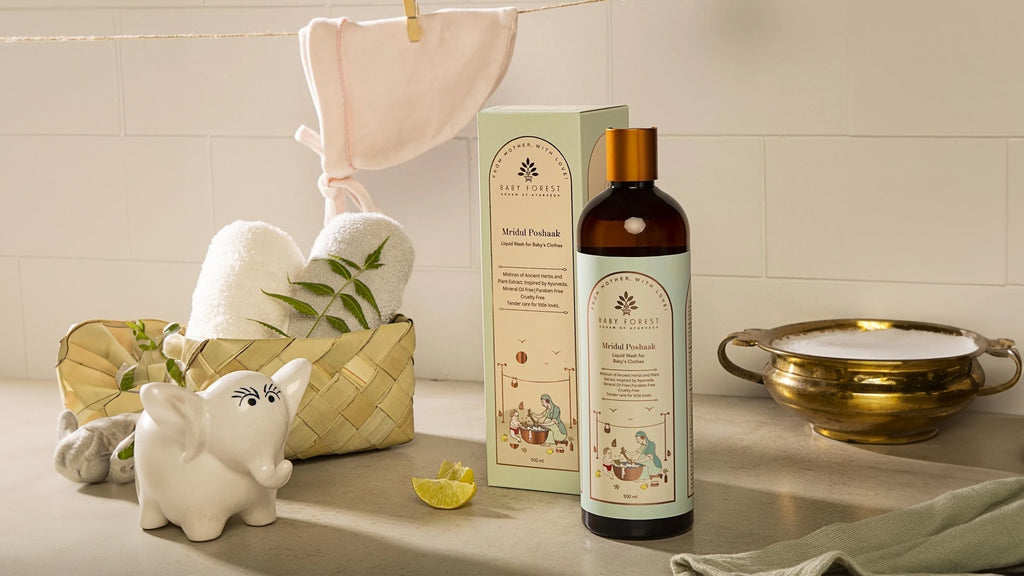
Gentle Cleaning: Tips for Using Baby-Safe Liquid Detergent
Welcoming a new member to the family brings immense joy and, of course, a wave of responsibilities. As new parents, ensuring the comfort and safety of your little one becomes a top priority, extending even to the laundry routine. In this article, we'll walk you through the ins and outs of gentle washing and discuss the benefits of using liquid detergent that is safe for babies. Let us help you take the best possible care of your baby's delicate clothing.
Baby clothing tends to develop more stains than adult clothing, so empower yourself on how to wash baby clothes using specially made baby detergent. Because when you consider everything, a parent has to worry about washing baby clothes and should not be one of them!
Why Choose Baby-Safe Liquid Detergent:
It can be overwhelming to choose the right product for your baby, with numerous options lining the store shelves. However, when it comes to your baby's clothes, opting for a baby-safe liquid detergent is a game-changer. Baby-safe detergents, unlike ordinary detergents, are carefully created to be mild, hypoallergenic, and free of harsh chemicals that could harm your baby's sensitive skin.
5 Benefits of Choosing a Baby-Safe Liquid Detergent:
-
Gentle on Delicate Skin:
Baby skin is incredibly delicate and prone to irritation. Baby-safe liquid detergents are specifically created for this purpose, providing a gentle yet effective cleaning solution. This ensures that your little one's clothes are free from harsh residues that might cause discomfort or allergic reactions. -
Hypoallergenic Formulas:
Infants are more susceptible to allergies, making it crucial to choose a detergent that is hypoallergenic. Baby laundry detergents are crafted to minimize the risk of allergens, providing a safe and irritation-free washing experience for your baby's clothes.
-
Mild Fragrances or Fragrance-Free Options:
While that lavender-scented laundry detergent might appeal to you, it may not be the best choice for your baby. Infant clothes detergents often come in mild fragrances or fragrance-free options, ensuring that your little one's clothes smell fresh without any overpowering scents that might be harsh on their sensitive noses. -
Effective Stain Removal:
Babies are experts at creating stains on their clothes, and tackling these stains requires an effective yet gentle detergent. Baby laundry detergents are formulated to lift stains without compromising on the gentleness required for your baby's clothes.
-
Preservation of Fabric Quality:
Your baby's clothes are often made from delicate fabrics. Using a baby-safe liquid detergent helps preserve the quality of these fabrics, ensuring that those adorable onesies and tiny socks remain soft and comfortable for your little one.
Selecting the Right Baby-Safe Liquid Detergent:
Choosing the right baby laundry detergent involves a bit of exploration. Look for products that explicitly mention being suitable for baby clothes and are free from dyes, fragrances, and harsh chemicals. Read labels carefully, opting for detergents with natural and plant-based ingredients, as these are less likely to cause irritation. Consider factors like whether your baby has sensitive skin or is prone to allergies. In such cases, fragrance-free options or detergents labelled as suitable for sensitive skin are excellent choices.
Baby Forest's Mridul Poshaak - Liquid Detergent for Baby’s Clothes is infused with the goodness of Neem Leaf Extract, Lemon Fruit Extract, Lemon Peel Oil, and a plant-based cleanser. This mild surfactant, handcrafted with care, has antibacterial characteristics that gently and thoroughly clean your baby's garments, ensuring a hygienic and delicate touch. Beyond cleanliness, it goes above and beyond to keep your child's clothes delightfully smooth.
How to Wash Your Baby's Clothes:
Hand Wash:
For hand washing, dilute one cap of baby laundry detergent in half a bucket of water and stir well. Soak your baby's clothes for 30 minutes, ensuring that the detergent penetrates and cleans effectively. After soaking, rinse thoroughly with clean water, removing any remaining detergent residue.
Machine Wash:
For a regular machine wash, pour two caps of baby laundry detergent into the washing machine. Place the dirty clothes in the machine and follow standard machine-washing protocols. This formula is suitable for both front-load and top load washing machines, ensuring a thorough and gentle cleaning process for your baby's clothes.
Conclusion
As you live through this exciting yet challenging world of parenting, every decision, no matter how small, contributes to your baby's well-being. A little but effective decision that guarantees your child's clothing is cleaned and handled with the greatest care is to use a baby detergent designed specifically for babies. It is more than just getting clothes clean; it's about making everything super comfy and caring for your little one. Consider each washes an added layer of comfort for your bundle of joy. So, let every wash be a step towards a world of comfort and care for your precious one.

Newborn’s First 24 Hours: Essential Guide and Tips

A Healthy Night Routine For Your Baby's Good Sleeping Hab...
Every new mom's most common complaint is that her baby doesn't sleep or always falls asleep at the wrong time during the day. A newborn still has a long way to go to understand the day and night cycle. The process is called the Circadian Rhythm. They have to experience the body's calmness and learn to proceed with sleeping. The ability to have a command of their body and mind is unknown to them. The predictability has to be implemented, and here's what a night routine does its wonders!
Ever wondered about the concept of the day and the night? It comes so naturally to us that we never question it. That is because we learned it so young that we couldn't question it.
A child always yearns for the calm feeling they have experienced in their mother's womb. The new surroundings are still a task for them to get adjusted to! But since the Lil ones are good learners! They will learn it all.
Why are aids bad compared to routines?
Some babies only sleep with their mom around or when their father carries them and pats them for a period. This might be helpful things for a while. But once they depend upon these means… development of bad sleeping habits in babies. It will only make things difficult for them once they grow up. What if you are not around and they want to sleep, all tired, but can't? Because of the unfamiliar absence of yours. This will irritate the child and end up being a significant issue. Some parents believe in using white sounds or a pacifier. A pacifier can indeed reduce the risk of SIDS ( a sleeping syndrome) but using it every time is a big no-no! Something from outside that makes the baby dependent is never a good choice.
Here are some good habits that you can use to calm your baby for sleep:
1. Swaddling and Lullabies: It activates calming effects and helps the child to fall asleep safely and soundly. They feel that being swaddled other than their mother's lap and lullaby is soothing.
2. Cuddles and Reading: The bedtime story is a prevalent idea. Instead, a tradition filled with good memories. It helps you bond with your child and gives them a platform to think; those stories also help you learn.
3. Bath or Massage: Some parents bathe their babies before making them asleep. It refreshes them, and massage helps their muscles to relax. Some babies feel tired after the bath routine and fall asleep out of tiredness. A good massage with Baby Forest Masoom Maalish Oil and champi with Nanhi champi hair massage oil will comfort the baby and soothe them for a good sleep.
At the age of 8-10 months, One should start a little bedtime routine for their child. It doesn't have to be a long one….with multiple steps, but just small habits like this that can stimulate the child about the next task; being asleep should be the motive, and you are all good to go! Sleeping habits hold importance right from the start. Inducing good habits is a journey that requires patience. But it remains with your child forever.
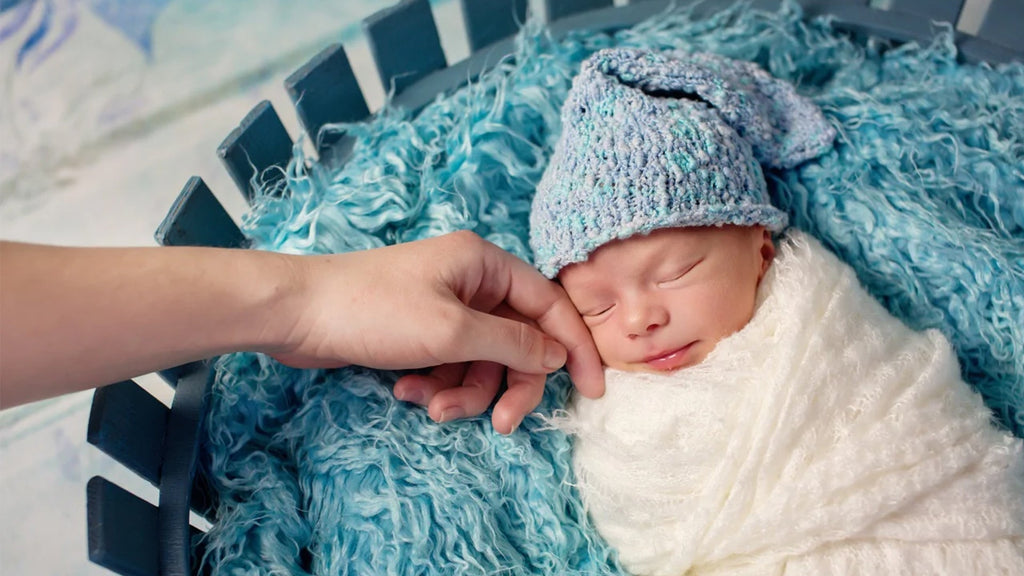
Prepare Your Baby for Winter: Tips for Dry Skin Care
As parents, we know how delicate our little ones’ skin is, but winter can make their skin even more vulnerable. The cold weather brings along dryness and can cause various baby skin care issues. From chapped cheeks to rough patches, winter can be tough on your baby's skin. While we can't control the weather, we can protect our baby's skin and keep it well-nourished during the colder months.
The good news? Taking care of your baby's skin during winter doesn't mean using lots of products—it's about using the right ones! Natural, gentle solutions are often the best. Here are some simple, tried-and-tested tips to help you with winter care for your newborn baby.
Moisturize With the Best Baby Face Cream for Winter
One of the biggest challenges for new moms is finding the right baby face cream for winter. It's tempting to go for products with trendy ingredients like hyaluronic acid, but for babies, it's best to stick with natural formulas. Your baby's skin is extra sensitive because it lacks the protective barrier that older skin has, so choosing products with natural oils is safer.
Make sure to moisturize your baby's skin daily, especially after baths and before going outside in the cold. Baby Forest Moh Malai Baby Body Lotion is an excellent choice—it's packed with natural ingredients like shea butter, coconut oil, almond oil, and pomegranate seed oil, which provide deep hydration while being gentle on your baby's skin. Regular use will keep your baby's skin soft, smooth, and protected from winter dryness.

Baby Skincare in Winter: Ease Off on Bath Time
During the colder months, it's important to rethink your baby's bath routine. If your baby is a newborn or an infant, there's no need for long or frequent baths. Winter care for newborn baby skin means avoiding too much exposure to water, which can dry out their delicate skin. Also, consider skipping bubble baths, as they can strip away natural oils.
Instead, choose a gentle, moisturizing soap like Baby Forest Nirmalya Snan Natural Baby Soap, which is made with jojoba oil, sesame oil, and castor oil. These natural ingredients will cleanse your baby's skin without causing dryness and will leave it soft and nourished. After the bath, be sure to pat your baby dry gently and apply a baby cold cream for winter to lock in moisture.
Dress Right for Winter Baby Care: Clothing and Temperature
We often think that layering our babies in thick clothes will protect them from the cold, but too many layers can cause discomfort and friction. Choose soft, breathable fabrics and avoid heavy materials that can irritate the skin. Woolens should be cleaned with a gentle detergent, like Baby Forest Mridul Poshaak Liquid Detergent, to keep them soft and free of harsh chemicals that could irritate your baby's sensitive skin.
It's also important not to overheat your home. While it's tempting to keep the house warm, too much heat can actually dry out the air, leading to dry skin and irritation. Maintaining a balanced, moderate temperature is part of proper baby skin care in winter.
Massage Your Baby with the Best Oil for Baby's Skin
Massaging your baby not only provides warmth but also boosts circulation, which is especially important in winter. Using the best oil for baby skin, like cold-pressed almond oil, can lock in moisture and keep your baby's skin hydrated. Almond oil is light and non-sticky, making it perfect for massaging your baby without leaving them feeling greasy.
Baby Forest Badami Sneh Organic Cold-Pressed Almond Oil is a great choice—it's highly absorbent, making it easier for moms to massage their babies while keeping their skin soft and nourished. Regular massages also help soothe your baby and can be a wonderful bonding experience.
Additional Tips for Winter Baby Care
Here are some extra tips to keep your baby's skin healthy and comfortable throughout the colder months:
-
Hydrate from the inside:
While your baby may not need as much water as older children, make sure they're getting enough fluids to stay hydrated. This helps keep their skin moisturized from within.
-
Protect from wind:
When taking your baby outside, cover their face with a soft scarf or blanket to shield their skin from the cold wind, which can cause chapping and irritation.
-
Diaper changes:
Even during winter, diaper rashes can still happen due to the lack of airflow and moisture buildup. Be sure to use a good barrier cream and change diapers frequently.
Conclusion
Winter can be tough on your baby's delicate skin, but with the right baby skincare in winter, you can keep dryness and irritation at bay. Stick to natural products, limit bath time, and make sure to moisturize regularly. Don't forget the importance of gentle massages with the best oil for baby skin, like almond or coconut oil, to help keep your baby's skin healthy and soft.
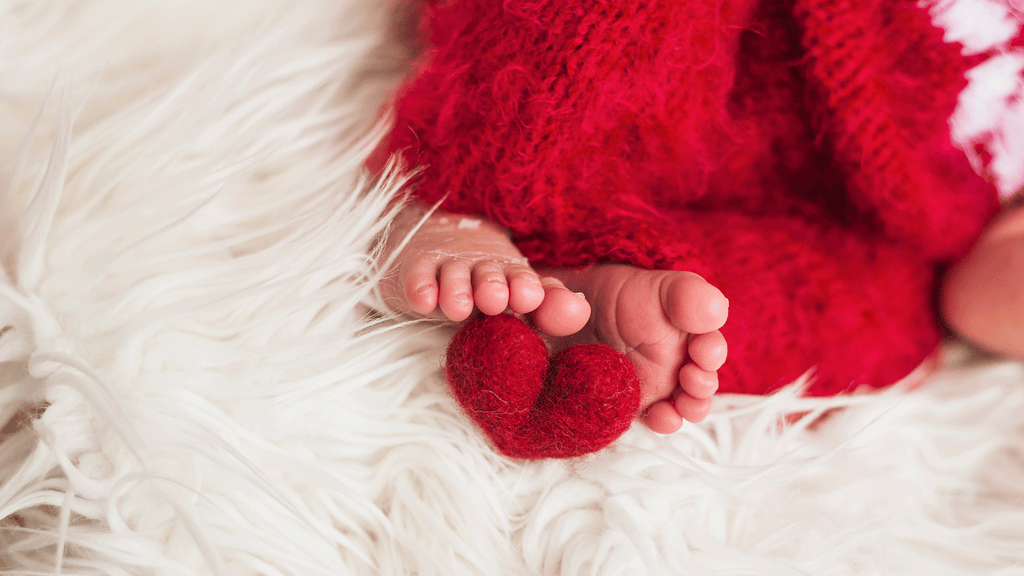
5 Must-Know Tips For Your Baby’s First Winter
As much as baby’s first things bring happiness to their parents, they are escorted by a lot of worries and anxiety. Especially for new parents who are in the process of discovering the right and wrong choices for a child. When it comes to winter, it is more than the weather. For adults, it is the time of the year when they can sunbath with their family members, eat all those healthy greens, gur, ladoos made by Dadis and Nanis what not!, the time to snuggle themselves in layers of quilts, and seek comfort like a baby. But for the little ones, it is harsher than the adults. They might not enjoy the coziness that winter carries with it. Their immunity and delicacy is more vulnerable in cold. But a small checklist of what you should prepare for your baby’s first winter will embrace comfort and warmth for them.

#1 A Massage A Day Will Keep The Cold Away
A massage for a little one is a wonder tip! It shields the delicacy of the baby packed with strength and nutrients. Cold weather stiffens the muscles and babies have even lesser muscle mass than adults so it is much more difficult for them to move freely. Almond Oil has the perfect nature and tempera for massage on those cold days. Baby Forest Badami Sneh Almond Oil is full of warmth and helps with the proper circulation of blood. It also works as a natural moisturizer that protects the fragile skin of the baby from being chapped off.

#2 Heavy Layers Are Never A Good Idea
We try to layer up the little ones with the good intention of protection but we forget that the weight is too much work for them. Secondly, it restricts them from setting their bodied in free motion which makes them vulnerable to Sudden Infant Death Syndrome.

#3 Breastfeed Is A Defense
When we say that: No one protects a child better than a mother; breastfeeding is one of the root reasons that support this fact! Breast milk is full of antibodies and boosts the immunity of a baby. And we all know how the months after the fall are followed by the cold and cough. Natural Antibodies provided by the milk are resistant to infections. Even for older babies, we have a solution! Baby Forest Komal Shwas vapor rub helps them to breathe easily and promotes better sleep.

#4 Give Them A Bath But Alternatively!
If you are afraid of bathing your baby in winters, don’t be! Lukewarm water is a completely safe option and is even essential to maintain the hygiene of a baby. But, exposing them to water every day might not be a wise choice. Choosing a suitable hour which is not too cold will avoid catching a cold and cough.

#5 Nature’s Bath Is The Best Bath
Who doesn’t love those warm, cozy, and glowing sunrays falling through the window? Well, nature has its shield all set for your baby. The best time to seek comfort from the sun is from 10 am to 3 pm. Rather than protecting your baby from the sun every time…exposure to the sun is very important for the absorption of vitamin D.
Note: Do not expose the baby for more than 30 minutes and seek a doctor’s help in case of any skin condition.



